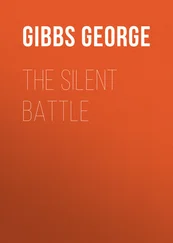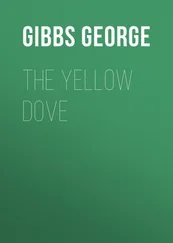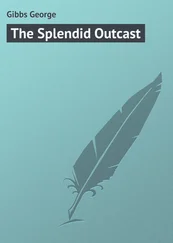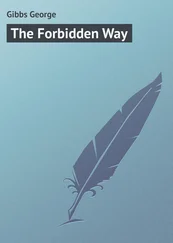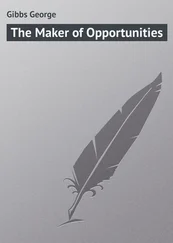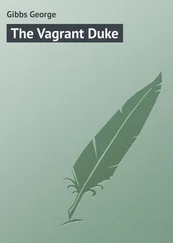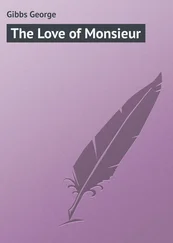George Gibbs - Dictionary of the Chinook Jargon, or, Trade Language of Oregon
Здесь есть возможность читать онлайн «George Gibbs - Dictionary of the Chinook Jargon, or, Trade Language of Oregon» — ознакомительный отрывок электронной книги совершенно бесплатно, а после прочтения отрывка купить полную версию. В некоторых случаях можно слушать аудио, скачать через торрент в формате fb2 и присутствует краткое содержание. Жанр: foreign_prose, foreign_language, Языкознание, Словари, foreign_antique, на английском языке. Описание произведения, (предисловие) а так же отзывы посетителей доступны на портале библиотеки ЛибКат.
- Название:Dictionary of the Chinook Jargon, or, Trade Language of Oregon
- Автор:
- Жанр:
- Год:неизвестен
- ISBN:нет данных
- Рейтинг книги:3 / 5. Голосов: 1
-
Избранное:Добавить в избранное
- Отзывы:
-
Ваша оценка:
- 60
- 1
- 2
- 3
- 4
- 5
Dictionary of the Chinook Jargon, or, Trade Language of Oregon: краткое содержание, описание и аннотация
Предлагаем к чтению аннотацию, описание, краткое содержание или предисловие (зависит от того, что написал сам автор книги «Dictionary of the Chinook Jargon, or, Trade Language of Oregon»). Если вы не нашли необходимую информацию о книге — напишите в комментариях, мы постараемся отыскать её.
Dictionary of the Chinook Jargon, or, Trade Language of Oregon — читать онлайн ознакомительный отрывок
Ниже представлен текст книги, разбитый по страницам. Система сохранения места последней прочитанной страницы, позволяет с удобством читать онлайн бесплатно книгу «Dictionary of the Chinook Jargon, or, Trade Language of Oregon», без необходимости каждый раз заново искать на чём Вы остановились. Поставьте закладку, и сможете в любой момент перейти на страницу, на которой закончили чтение.
Интервал:
Закладка:
The introduction of the Cree and Chippeway words is of course due to the Canadians. None have been derived from the Spanish, as their intercourse with the Nootka and Makah Indians was too short to leave an impression. Spanish words, especially those relating to horses or mules and their equipments, have of late come into general use in Oregon, owing to intercourse with California, but they form no part of the Jargon. It might have been expected from the number of Sandwich Islanders introduced by the Hudson's Bay company, and long resident in the country, that the Kanaka element would have found its way into the language, but their utterance is so foreign to the Indian ear, that not a word has been adopted.
In the nouns derived from the French, the definite article le , la , has almost in every instance been incorporated into the word, and the same has in one or two instances been prefixed to nouns not of French origin. Besides the words created by direct onomatopoeia, there are quite a number which are really Indian, but have their origin in the similarity of sound to sense.
Dr. Scouler's analogy between the Nootkan and "Columbian," or Chinook, was founded on the following words:
English. Tlaoquatch and Nutka. Columbian. plenty, *aya, *haya. no, *wik, *wake. water, tchaak, chuck. good, *hooleish, *closh. bad, *peishakeis, *peshak. man, *tchuckoop, tillicham. woman, *tlootsemin, *clootchamen. child, *tanassis, *tanass. now, tlahowieh, clahowiah. come, *tchooqua, *sacko. slave, mischemas, *mischemas. what are you doing *akoots-ka-*mamook, ekta-*mammok. what are you saying *au-kaak-*wawa, ekta-*wawa. let me see, *nannanitch, *nannanitch. sun, *opeth, ootlach. sky, *sieya, *saya. fruit, *chamas, *camas. to sell, *makok, *makok. understand, *commatax, *commatax.
But of these, none marked with an asterisk belong to the Chinook or any of its dialects. The greater part of them are undoubtedly Nootkan, though there are errors in the spelling and, in some instances, in the meaning. Of the rest, the Nootkan tchaak and the Chinook tl'tsuk alone presents an analogy. Klahowiah does not mean "now," nor do I believe it is Nootkan, in any sense. It is, as explained in the dictionary, the Chinook salutation, "How do you," "Good-bye," and is supposed to be derived from the word for poor , miserable . Mischemas is not Chinook, and is probably not Nootkan. With the exception of Franchere, whose short vocabulary was published by Mr. Gallatin, and Mr. Hale, all the writers mentioned by Ludwig who have given specimens of the Chinook language, have presented it in its Jargon form, more or less mixed with the neighboring ones, and with corruptions of French and English words. Mr. Swan, among others, has been led into this error. The place of his residence, Shoalwater Bay, is common ground of the Chinook and Chihalis Indians, and the degraded remnants of the two tribes are closely intermarried, and use both languages almost indifferently.
Setting aside interjections, common in a more or less modified form to several adjoining tribes, twenty-one words of those given in this vocabulary present noticeable analogies between the Chinook and other native languages. They are as follows:
English. Chinook. Hailtzuk and Belbella. salmon berries, klalilli, olalli.
English. Chinook and Clatsop. Nootka.
Jewitt and Cook.
water, tl'tsuk : tl'chukw, chauk : chahak.
English. Chinook. Cowlitz. Kwantlen. Selish. six, tákhum, tukh'um, tuckhum', táckan.
English. Chinook. Chihalis. Nisqually. deep, kellippe, kluputl, klep glad, kwan, kwal ( tame ) proud, eyútl, júil. demon, ichiatku, tsiatko, tsiatko. black bear, eitchhut, chetwut. crow, skaka, skaka. oyster, klokhklokh, chetlókh, klokhklokh. game of "hands," itlokum, setlokum.
English. Chinook. Yakama and Klikatat. certainly, nawitka, n'witka. always, kwanisum, kwálisim. younger sister, ats, atse. road, wehut, wiet ( far ). barrel, tamtúlitsh, tamolitsh. buffalo, emúsmus, músmus. coyote, itálipus, talipa ( gray fox ). mouse, kholkhol, khóilkhoil. bread, tsapelil, saplil. needle, okwépowa, kapus ( a pin ).
The Clatsop (Klátsop) is merely a dialect of the Chinook (Tchinúk); the Cowlitz (Káualitsk), Kwantlen, Chihalis (Tsihélis), and Nisqually (N'skwáli), are severally languages belonging to the Sélish family. The Yakama and Klikatat are dialects of one of the Sahaptin languages; and the Tokwaht (Tokwát), Nittinat, and Makah (Maká), quoted in the dictionary, are dialects of the Nootka (Nútka), of which the Hailtzuk or Belbella (variously spelled Haeeltzuk and Hailtsa) is probably the northern type. It thus appears that, with two or three exceptions, the analogies of the Chinook, as contained in this vocabulary, are to be sought in the immediately adjoining tongues, or those of languages belonging to the same families with them; that these analogies, with perhaps one or two exceptions, can by no means be considered radical, and that their correspondence, or rather adoption, is easily accounted for by neighborhood and habits of intermarriage. A much more remarkable coincidence is the fact that two words included in this Jargon,—one from the Nootkan, viz., Mawitch , a deer, venison; and the other Chinook, Mooluk , an elk,—are also to be found in the Kowilth, the language of Humboldt Bay, in California. As this bay was first discovered in the winter of 1849-50, the words could not have been introduced by the fur trappers.
With regard to the form into which this dictionary has been thrown, an explanation is necessary. The Jargon must in some degree be regarded as a written language, the orthography of which is English. In Mr. Hale's vocabulary alone has one more scientific been attempted, and of several other printed, and numerous manuscript dictionaries in circulation, M. Lionnet's alone, that I have met with, is according to the French. Although no fixed system of spelling exists among them, I have therefore deemed it best to preserve for the Jargon words that which most distinctly represents the common English pronunciation; while for the Indian derivations, I have adopted that recommended by the Smithsonian Institution in collecting Indian vocabularies, using the Italian sounds of the vowels, and representing the guttural of the German ich by kh . This seemed the more proper, as the work would thereby be rendered of practical use, independent of what philological value it may possess.
In collating the words of the present work and obtaining their derivations, I have been assisted by a number of friends; among whom I should specially mention Mr. Alexander C. Anderson, of Victoria, V.I., and Mr. Solomon H. Smith, of Clatsop, Oregon.
~Bibliography of the Chinook Jargon.~
Journal of Travels over the Rocky Mountains. By Rev. Samuel Parker. 12mo. Ithaca, N.Y., 1838.
"Vocabulary of the Chenook language, as spoken about Fort Vancouver," pp. 336-338.
Ethnography and Philology of the United States Exploring Expedition. By Horatio Hale. 4to. Philadelphia: Lea & Blanchard, 1846.
A vocabulary of the "Jargon or Trade Language of Oregon," with an essay thereon, and phrases, is given in this work, pp. 636-650.
Transactions of the American Ethnological Society. 2 vols., 8vo. New York: Bartlett & Welford, 1845, 1848.
In vol. ii., pp. 62-70, under title of "Hale's Indians of Northwest
America," is a partial reprint of the above.
Rev. Z.B.Z. Bolduc, " Mission de la Colombie. " 8vo. Quebec, 1843.
The Lord's Prayer in Jargon, "et quelques mots Tchinoucs et Sneomus." The
Читать дальшеИнтервал:
Закладка:
Похожие книги на «Dictionary of the Chinook Jargon, or, Trade Language of Oregon»
Представляем Вашему вниманию похожие книги на «Dictionary of the Chinook Jargon, or, Trade Language of Oregon» списком для выбора. Мы отобрали схожую по названию и смыслу литературу в надежде предоставить читателям больше вариантов отыскать новые, интересные, ещё непрочитанные произведения.
Обсуждение, отзывы о книге «Dictionary of the Chinook Jargon, or, Trade Language of Oregon» и просто собственные мнения читателей. Оставьте ваши комментарии, напишите, что Вы думаете о произведении, его смысле или главных героях. Укажите что конкретно понравилось, а что нет, и почему Вы так считаете.
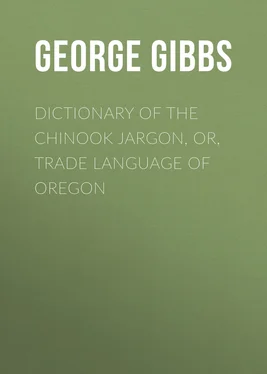

![Theresa Cheung - The Dream Dictionary from A to Z [Revised edition] - The Ultimate A–Z to Interpret the Secrets of Your Dreams](/books/692092/theresa-cheung-the-dream-dictionary-from-a-to-z-r-thumb.webp)


